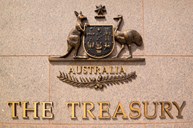Now is a great time to take stock of your financial affairs, look to the year ahead and put a plan in place to improve your budgeting and financial planning.
Taking a look at the tax system is an important part of that, so what do you need to know about the year ahead in tax that you can use to your advantage?
All taxpayers - keeping your tax records up to date
You may only think of tax at the end of the financial year, but it is important to ensure your tax records are always up to date.
If you drive your car for work, cover more than 5,000km's and want to claim a tax deduction, you need to ensure you have a logbook in place to record your journeys. If you don't have one, now is a good time to start. The logbook needs to cover a 12 week period, so if you missed out on your maximum claim for car travel this year because you did not have a log book, starting now will ensure the logbook is complete well before the end of the next tax year.
In addition, make a concerted effort over the whole year to keep all tax records (including invoices and receipts) in a safe place. If you're well organised now, it will pay dividends next tax time.
High income individuals
If you are single and earn more than $97,000 or part of a family and your family income is more than $194,000, and you do not have Private Hospital Cover, you may be liable for the medicare levy surcharge. This is in addition to the 2% medicare levy, and is charged at a rate of between 1 and 1.5% of your income. The thresholds for liability for medicare levy surcharge will increase to $101,000 for single people and $202,000 for families for the 2026 year. Ask your tax consultant if this will impact you, so you can determine if it is worth taking out private health insurance or ensuring your employer withholds extra tax in order to cover your medicare levy surcharge liability.
Small businesses owners
From 1 July 2023 to 30 June 2025, businesses with turnover less than $10 million will be able to claim an immediate deduction for capital equipment under the Instant Asset Write-Off provisions for assets that cost less than $20,000. The Federal Government has announced that this concession will be extended until the end of the 2026 year.
Superannuation rule changes
If you are in business and have employees, you will need to be aware of the superannuation changes.
The superannuation guarantee increases to 12% on 1 July 2025.
For new employees, you are required to request the details of their 'stapled super fund' from the ATO. A stapled super fund is an exisiting super account which is linked, or 'stapled', to an individual so that it follows them as they change jobs. If an employee doesn't have an existing super fund and doesn't nominate one, then you must pay their super into a default fund with a MySuper option for contributions.
From 1 July 2026, employers will be required to pay their employees’ super at the same time as their salary and wages.
More information
H&R Block can help you lodge your return online or in one of our many office locations around Australia.
Updated June 2025




.png?width=55&height=48&ext=.png)
-1.svg)

